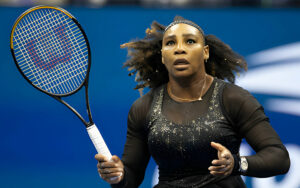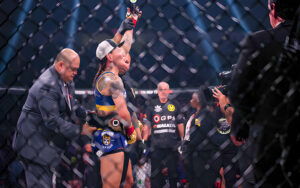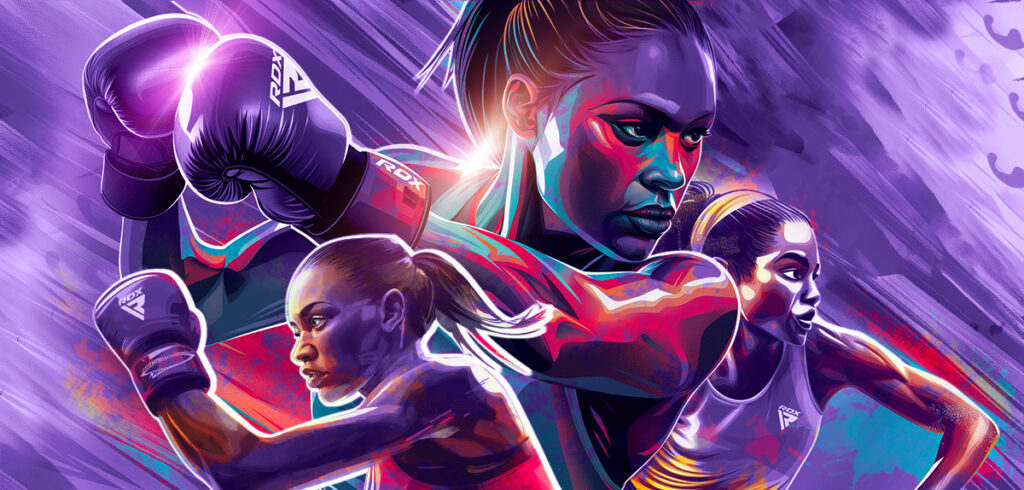In the world of sports, men have traditionally been celebrated as the front runners. While men enjoy all the glory, the spotlight often misses the true stars – women.
Women, (and female athletes in particular) are the unsung warriors who have not only challenged the status quo but have redefined it, stride by stride, punch by punch, goal by goal. In this blog, we will be flipping the script and shining a well-deserved spotlight on these incredible women.
They’ve not only competed; they’ve shattered expectations and broken barriers, proving that the heart of a champion knows no gender. Their stories are not just about athletic achievements; they’re about courage, resilience, and the relentless pursuit of greatness.
These women have turned the tide, transformed the game, and in doing so, inspired not just upcoming generations of athletes but every single one of us who dares to dream big.
So, let’s celebrate with RDX Sports the strength, the spirit, and the sheer determination of the women who’ve made the sports world what it is today.
Breaking Barriers: Historical Context of Women in Sports
Women in sports have come a long way. Their journey has been a relentless pursuit to shatter the glass ceiling of gender norms. Historically, women have dealt with societal, institutional, and legal barriers to access and excel in the competitive world of athletics.
Let’s shed light on how their challenges and milestones have forged paths for the champions of today and tomorrow.
Related Article: Breaking Glass Ceilings or Glass Faces
Challenges and Barriers
For centuries, women were sidelined in the world of sports, confined by societal norms that stated athletic competition as unladylike and inappropriate. The challenges they encountered were complex and deeply rooted in gender biases.
Legal and policy-based restrictions placed a formidable barrier to entry, explicitly prohibiting women from participating in various sports activities. These legislative hurdles reflected and reinforced the societal belief that sports were exclusively the domain of men.
Financial support and media attention, crucial for the growth and recognition of athletes, were significantly lacking for women in sports. The disparity in funding meant fewer resources for training, equipment, and competition, while the minimal media coverage further marginalised female athletes, rendering their achievements invisible to the broader public.
Moreover, the scarcity of access to quality training facilities and professional coaching further increased these challenges. The prevailing narrative questioned the physical capabilities of women to withstand the demands of competitive sports.
This notion not only underestimated women’s physical potential but also contributed to the perpetuation of gender stereotypes, hindering the progress and recognition of women.
Hence, these barriers created a challenging landscape for women in sports history aspiring to pursue sports.
Key Milestones and Moments
Despite these hurdles, history is full of women’s sports milestones. There are countless moments where women began to challenge and redefine traditional gender roles in athletics.
One of the earliest milestones was in 1896 when Stamata Revithi ran the marathon course of the first modern Olympic Games, a day after the men, protesting against the exclusion of women from the Olympics.
The formation of the Women’s Olympiad in 1921 and the inclusion of women’s events in the 1928 Olympic Games marked significant progress in the fight for gender equality in sports.
Another landmark moment was the passage of Title IX in the United States in 1972, a federal civil rights law that prohibited gender discrimination in any education program or activity receiving federal financial assistance. This legislation opened the doors for millions of girls and women to participate in sports at all levels.
Celebrating Pioneers
It’s crucial to remember and celebrate the women who paved the way. Athletes like Babe Didrikson Zaharias proved that women could excel in sports. Billie Jean King’s victory in the “Battle of the Sexes” tennis match showed the world that women’s sports are thrilling and competitive.
These pioneers, and many others, laid the groundwork for future generations, challenging stereotypes, and inspiring a new era of female athletes. Their stories inspire us to keep pushing forward, to try our best, and to believe in our dreams.
Icons of Inspiration: Profiles of Female Sports Legends
Let’s have a look at some of the most inspirational women in sports. These female sports icons have challenged stereotypes and risen above to dominate the world.
Serena Williams

Dominance in Tennis
Serena Williams has not just played tennis; she has redefined it. With an unparalleled career that includes 23 Grand Slam singles titles, Serena’s dominance on the court is unmatched.
Her powerful serve, unyielding determination, and remarkable agility have made her one of the greatest athletes of all times. Serena’s journey has not only reshaped the landscape of tennis but has also inspired countless young girls to pursue their dreams in the sport.
Advocacy for Equality
Beyond her athletic achievements, Serena has been a vocal advocate for gender equality and racial justice. On and off the court, she’s used her platform to challenge disparities in pay and treatment between male and female athletes and to speak out against racial injustice.
Her activism has sparked conversations and brought attention to crucial issues, making her a role model not just in sports but in life.
Ronda Rousey

Groundbreaking MMA Career
Another iconic female athlete is Ronda Rousey. Her impact on mixed martial arts (MMA) is monumental. As the first woman to sign with the Ultimate Fighting Championship (UFC), Rousey broke barriers and paved the way for women in combat sports.
Her fierce competitiveness and string of victories in the UFC showcased the skill and athleticism of women fighters, elevating the visibility and popularity of women’s MMA around the world.
Challenging Stereotypes
Ronda Rousey has truly revolutionised the way we view women in combat sports. By dominating in an arena once ruled by men and standing up for women’s rights to compete in Mixed Martial Arts (MMA), she’s not just talked the talk; she’s walked the walk.
Her success inside the ring proves that femininity and strength go hand in hand, smashing old stereotypes. Rousey’s journey has lit a fire in countless women and girls, showing them that they too can achieve greatness in combat sports.
Her impact goes beyond just winning fights; she has changed minds and opened doors, proving women belong in the ring just as much as men.
Cris Cyborg

Trailblazing MMA Career
Cris Cyborg‘s career in women’s MMA is nothing short of legendary. As a multiple-time world champion across different MMA organisations, Cyborg has established herself as one of the most dominant fighters in the history of the sport.
Her aggressive fighting style, combined with her technical skill, has made her a feared opponent and a fan favourite.
Resilience and Determination
Cyborg’s path to becoming a leading figure in women’s Mixed Martial Arts (MMA) is a powerful example of never giving up. She faced tough times, like having to lose a lot of weight quickly, which is really hard and risky.
Additionally, her career has been marked by very public disagreements with fight promoters, which could have derailed many athletes’ careers. These disputes often centred around recognition, fight opportunities, and respect within the sport, highlighting the struggles female athletes face for equal treatment and representation.
Despite this, she didn’t just overcome these obstacles; she used them as fuel to continue dominating in the ring, securing her status as one of the top fighters in women’s MMA.
This journey is particularly inspiring because it reflects a deeper narrative of fighting against not just physical opponents but systemic issues within the sports industry. Being one of the trailblazing female athletes, her story encourages many women to keep pushing, no matter what problems they face, whether in sports or in life.
Related Article: The Brutal Weight Cutting In Mixed Martial Arts
Beyond the Field: Impact and Legacy of Female Athletes

While most people believe athletes to win games and medals, their impact extends far beyond the field. Have a look at how these incredible women change the world, inspire young girls and face challenges head-on.
Societal Impact of Female Athletes
When a woman wins a big sports event, it’s like a ripple in a pond. That ripple spreads out, changing things far beyond the water’s edge. By excelling in their respective sports, women athletes challenge longstanding stereotypes about femininity and physical strength, demonstrating that skill, determination, and physical prowess are not confined by gender.
Their achievements contribute to a broader cultural shift towards gender equality, encouraging a reevaluation of traditional gender roles and inspiring positive changes in policies and practices, both within and beyond the sports world.
The Role of Representation
Representation matters. When young girls see female athletes excelling, breaking records, and receiving recognition, it expands their horizons and alters their perceptions of what is possible. This visibility is especially important in traditionally male-dominated areas such as combat sports.
Female icons like Ronda Rousey and Cris Cyborg not only dominate in the ring but also dismantle the myth that combat sports are not suitable for women. Their success and visibility inspire young girls and empower women to pursue their dreams in athletics, combat sports, and beyond.
Challenges and Opportunities in Combat Sports
While progress has been made, women in combat sports still face significant challenges. Issues of gender equity remain prevalent, including disparities in pay, sponsorship opportunities, and media coverage compared to their male counterparts. Women often have to fight harder for recognition and to prove their marketability and draw as athletes.
However, these challenges also present opportunities. The growing popularity of women’s MMA, for instance, has led to increased demand for female bouts, influencing promotions to invest more in women’s divisions.
Moreover, social media has become a powerful tool for athletes to build their brands and connect directly with fans, bypassing traditional media gatekeepers.
Empowerment Through Sport: Lessons Learned and Future Directions
Sports are more than just games; they’re a powerful platform for empowerment, teaching us invaluable lessons about resilience, determination, and leadership. Reflecting on these lessons and looking towards future directions, we can further harness the power of sports as a catalyst of empowerment.
Lessons Learned
Resilience in the Face of Adversity: The stories of the legendary female athletes overcoming barriers teach us about the power of resilience. These women have faced societal, physical, and institutional challenges, yet their unyielding determination has not only led them to success but has also paved the way for future generations.
Equality and Representation Matter: The increasing visibility of women in sports has challenged traditional gender roles and demonstrated the importance of equal representation. It underscores the necessity for girls and young women to have role models who reflect what they can aspire to and achieve. It also highlights the critical role of media coverage and equitable support.
Leadership and Confidence: Participation in sports equips women with leadership skills and self-confidence. It provides a platform for developing teamwork, communication, and strategic thinking skills. These are also transferable to other areas of life, including personal and professional spheres.
Future Directions
Inclusive Policies and Practices: Moving forward, sports organisations and governing bodies must continue to develop and implement policies that promote gender equality. This includes equal pay, access to resources, and opportunities for women in sports, from grassroots to professional levels.
Enhancing Accessibility: Efforts should be made to increase the accessibility of sports for all women, regardless of their background or physical ability. This includes creating safe and welcoming environments for women and girls to participate in sports, breaking down socio-economic barriers to access, and providing adaptive sports opportunities for athletes with disabilities.
Expanding Representation: It is essential to continue broadening the representation of women in all aspects of sports, including coaching, officiating, and leadership positions within sports organisations. By doing so, we can ensure that decision-making processes are inclusive and reflective of the diverse needs and perspectives of female athletes.
Education and Advocacy: Education plays a crucial role in changing perceptions and attitudes towards women in sports. Ongoing advocacy and awareness-raising efforts are necessary to challenge stereotypes, celebrate achievements, and highlight the benefits of sports participation for women and girls.
Leveraging Technology and Media: Technology and media have the power to amplify women’s sports, providing platforms for sharing stories, increasing visibility, and building communities. Investing in digital platforms and social media strategies can engage wider audiences and foster a global community of supporters for women in sports.
Conclusion
As we celebrate the incredible journeys of these female athletes, from the tennis courts to the MMA octagons, it’s clear they’ve done more than just win titles; they’ve changed the game for everyone. Through their resilience, determination, and leadership, they’ve broken barriers, challenged stereotypes, and inspired generations.
Their stories are a powerful reminder of the strength and potential within every woman and girl dreaming of their place in sports. But the journey doesn’t end here. It’s up to all of us—fans, athletes, coaches, and leaders—to keep pushing for change, to create a world where gender equality in sports isn’t just a goal, but a reality.
Let’s carry forward the legacy of these game changers, not just by celebrating their achievements but by continuing their fight for a fair and inclusive sports world for all.





